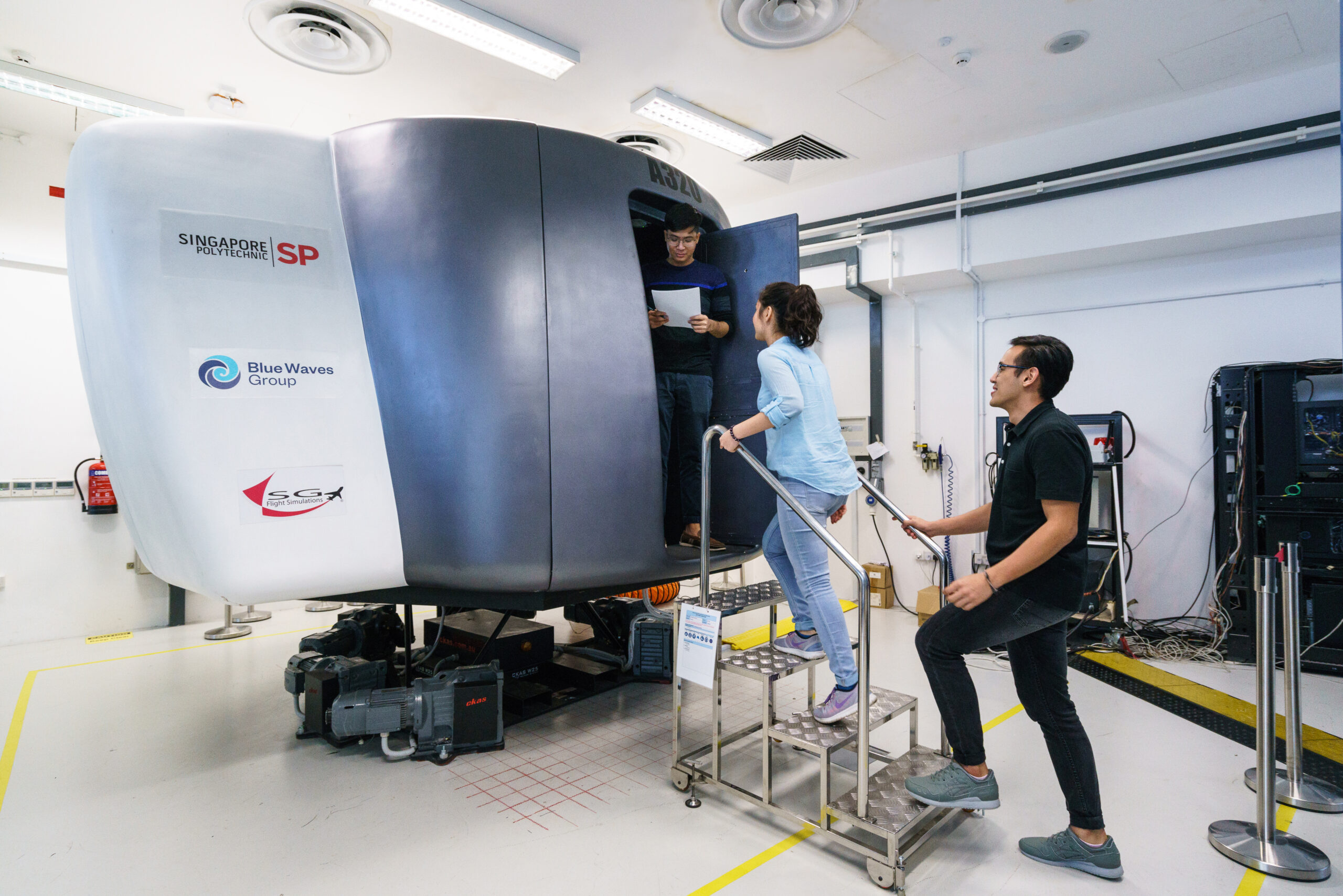SP PACE Academy continues to shape Singapore’s learning journey

While many organisations in Singapore have already taken steps towards digitalisation before 2020, the pandemic has accelerated the pace of digital transformation.
This rapid digitalisation, according to Wong Jian Chang, Director, SP PACE Academy, is being reflected in all aspects of life in Singapore, “from working and having meetings at home, to hawkers accepting e-payment and even jumping onto the bandwagon of food delivery platforms.”
The wider significance of a more digitalised society, Mr Wong told HRM Asia, is the readiness of both organisations and their people to adapt, learn and upgrade in the face of change. “Having employees who are able to adapt and embrace changes is pivotal in driving an organisation forward. By constantly sending employees to upgrade and upskill, organisations are futureproofing themselves, enabling greater flexibility from within.”

“Having employees who are able to adapt and embrace changes is pivotal in driving an organisation forward. By constantly sending employees to upgrade and upskill, organisations are futureproofing themselves, enabling greater flexibility from within.” – Wong Jian Chang, Director, SP PACE Academy.
SP PACE Academy, for many years, has been at the forefront of reskilling and upskilling employees in Singapore, helping organisations identify the key skills they will require to move ahead in their businesses.
Mr Wong highlighted, “As a corporate learning & development provider and corporate training provider, SP PACE Academy is able to facilitate organisations in objectively evaluating their needs, accurately identifying training gaps and henceforth coming up with customised courses that are both impactful and relevant.”
SP PACE Academy helps companies achieve training needs, and more
As General Manager of Eastport Maritime, a shipbroking and consultancy company, Sharon Teo oversees the business and corporate support function of the company. “I am always looking at ways and means to increase productivity, enhance internal communication and to equip our people with the necessary skills so they can do their jobs better,” she explained.
Therefore, any training partner for Eastport Maritime needed to be able to objectively evaluate the company’s needs, accurately identify training gaps, and propose suitable courses that can be impactful and relevant.
While SP PACE Academy met all these requirements, their partnership with governmental bodies also allowed Eastport Maritime to embark on courses that enjoy significant subsidies. “This defrayed cost allowed us to focus on areas that benefit our employees,” said Ms Teo, who also views SP PACE Academy as in-house HR training specialists who consider all of the company’s concerns and needs.
She continued, “They are not just your typical trainer – they also connect you to a bigger network of HR practitioners and solutions providers via the seminars they organise on a periodical basis. These sessions allow us to have insights into new solutions in the marketplace, and to have exchanges with HR practitioners.”
For Sixty-Six Switchgears, a business-to-business service organisation in the field of electrical equipment engineering, looking for ways to improve the skills of their engineers is an on-going and critical endeavour, revealed Tomabo Jiao, Business Development Manager.
As many of the company’s engineers are electrically trained, as opposed to computer and programming trained, Sixty-Six Switchgears identified a need to strengthen their engineers in Programmable Logic Controller (PLC) and Supervisory Control and Data Acquisition (SCADA) programmes.
Going above and beyond, SP PACE Academy customised a course for Sixty-Six Switchgears, which recreated day-to-day work scenarios and switchboard fault stimulation in the SP PACE Academy lab.
“Many of our engineers have been in the trade for more than 20 years, doing the same things day in, day out, so when they are introduced to a new system such as PLC or SCADA, they are inspired to learn new things and to cultivate a continuous learning effort. We also hope such courses help to increase the efficiency of their output,” said Mr Jiao.
Collaborative efforts with key industry leaders
In sharp contrast to the previous largely solo approach in CET, the following are examples of SP’s transformed collaborative model with industry:
- Collaborating with Industry to Identify Skills Gaps and Shape CET Offerings.
- Collaborating with Industry to Co-Design and Deliver CET Offerings in the spirit of ‘Training with Industry, For Industry’.
- Collaborating with Industry to Lift Entire Industry Sectors (Queen Bee Concept) – The Queen Bee concept is to help with the training needs of industry leaders and through them address the training needs of other companies in their relevant sectors.
For example, through collaborating with Bosch Rexroth and Singaporean-German Chamber of Industry and Commerce, SP and Bosch Rexroth co-design and co-deliver the certification course, i.e. Industry Specialist AHK i4.0 and bite-sized programmes on advanced manufacturing so as to support SMEs and non-SMEs in their transformation journey towards i4.0.
Through collaborating with Woh Hup, SP gained an understanding of technology utilisation in the construction sector. With this deeper understanding, SP was able to design and deliver relevant programmes to address business transformation needs in the sectors that the above companies operate in. Other companies in the business value-chain of these companies also benefitted from the training package solutions and thereby a multiplier effect was created.
Flexibility key for future workforce
These successful examples perhaps, go a long way towards explaining why SP PACE Academy have been named the Gold Winner in the Best Learning and Development Provider category in the HRM Asia Readers’ Choice Awards in 2019 and 2020.
The continued commitment to ensure continued relevancy of employees’ skillsets in tandem with industry needs in Singapore, will also see SP PACE Academy continue to play a leading role in building the skills required by the workforce of the future, especially as digitalisation continues to accelerate.
Mr Wong concluded, “As we’ve witnessed during this pandemic, the ability to quickly embrace and adapt to digitalisation plays a paramount role. Not only does it enable companies to quickly pivot to different business environments, it also puts them in the driving seat to emerge stronger from the pandemic, especially with employees who are more versatile to engage and take up different roles and responsibilities.”



